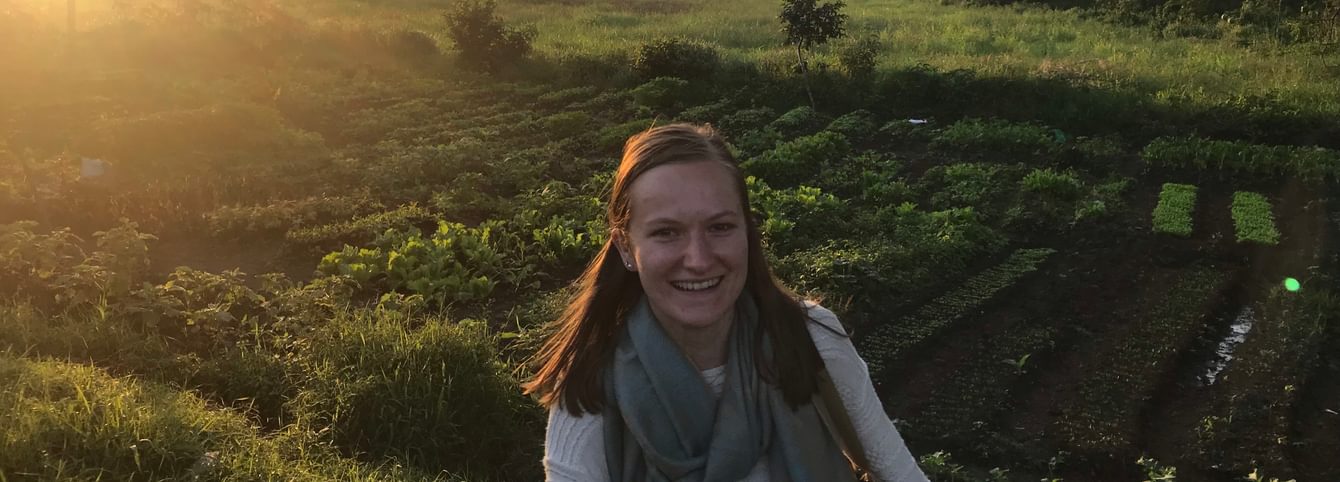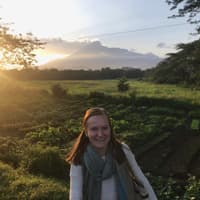Alyssa Harvie
Alyssa Harvie is an alumna of the 2019 CLS Swahili program in Arusha, Tanzania. She’s a recent graduate of American University, where she attained a Bachelor of Arts in International Studies and now works at the Atlantic Council’s Africa Center, pursuing a career in African affairs and human rights. She plans to pursue doctoral work in International Relations to continue her research on the relationship between access to mental health services and national and community reconciliation. In her spare time, Alyssa enjoys reading, gardening, journaling, yoga, art, and drinking tea.
Why Swahili?
My interest in sub-Saharan Africa is very important to me, and though many years studying French granted me more access to information and to connect with people, I hoped to gain more language skills relevant to Africa. I began taking Swahili because learning a Bantu-based language not strongly associated with European colonialism appealed to me. I very quickly fell in love with the language and the opportunities for cultural learning. I also came to appreciate Swahili’s growing importance as a lingua franca, increasingly taught in schools in other African countries, and its importance as a symbol for unity in East Africa.
Swahili is increasingly useful for business, trade, and international affairs, and allows you to connect with people from a wide variety of cultures in East Africa. You can learn so much from the grammatical structures and syntax, there are many fun words, and it helps shift your focus away from Eurocentric language and concepts.
I hope to use my Swahili skills in my work in African affairs to communicate with partners and relevant stakeholders. I also intend to conduct research with Swahili speakers and using Swahili-language media. I expect that one day, if I need to learn a local language related to Swahili, it will be easier for me because of my now-strong background in Swahili grammar.
Shaghalabaghala

My CLS cohort quickly acquired a favorite word during our program: Shaghalabaghala. Aside from being fun to say, it was also applicable to our adjustment to a different culture in which people treated time and planning differently, and in which our efforts to learn and try new things could lead to unpredictable results. Shaghalabaghala means “messy” or “chaos,” and we used it affectionately to describe our group’s adventures, or to describe days or events that didn’t go according to plan. The word helped us to acknowledge the reality of life, let go, and go with the flow. Maybe we misunderstood instructions in Swahili and completed assignments incorrectly, or had to rush to build our tents during a sudden downpour while camping on the Serengeti, or the campus monkeys raided some of our snacks. We could say it was “shaghalabaghala” and laugh it off. Life was messy and unpredictable, but life went on, and it was a blessing nonetheless.
Unforgettable Moments on CLS
One of my CLS friends had a host dad who was a safari guide, who took several of us on a safari to the Serengeti one weekend, bringing along his son—who was our age—for the first time. Going on an adventure with friends, seeing incredible sights and animals we had only ever dreamed of, camping and listening lions and hippos hunting at night, and learning from him and his experiences was a real gift. It was also incredible to see his son experience natural treasures of his own country for the first time—something that many Tanzanians don’t get to do. We laughed till our stomachs hurt for the entire weekend and it was even more wonderful because we got to spend it with members of our school’s local community. That weekend was such a special, memorable, and joyful experience that I will treasure forever.
Advice for Applicants

I applied to CLS a total of three times before I was finally accepted. I was sad and discouraged when I was rejected and given alternate status, but in applying repeatedly and finally getting accepted I learned an important lesson about perseverance, believing in myself, and never giving up on my dreams. If there is anything I would like applicants to know, it’s that they shouldn’t give up, and as someone who has both been rejected and completed the program, putting yourself out there and trying again is so, so worth it.



